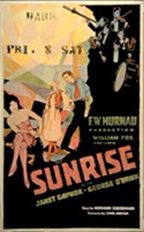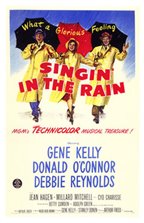Dir: Spike Jonze

I just didn’t feel this. And I think that’s the *key* to the film.
Formally it’s a fine enough piece of filmmaking. Lance Accord demonstrates that he one of the most deft and sensitive cinematographers working today and the production design is as striking as the smart f/x that bring the Wild Things’ faces to life. Yet on an emotional level, it’s the psychological baggage you bring to this picture which determines how big the reward you receive from its slight premise. This could, of course, be said for any picture, but I’d argue that the sheer distance of suspension of disbelief and identification that one brings to the party when one is trying to identify with wild eyed murderers, spacemen, superheroes or robots goes a long way to filling in the empathetic gaps one is confronted with in a situation that is ostensibly “real” (a child with problem issues) yet so far from one’s own experiences, no matter how fantastical his adventures get. Because no matter how imaginative the realm of the Wild Things, ultimately, the kid is the key to all the rumpus. More on that below.
That makes me either cold-hearted, devoid of empathy or just lucky. My reaction to two other recent pictures dealing in similar emotional baggage (the thoroughly charming and heart-wrenching duo of Up and Away We Go) make me unwilling to cop to the former two, so…
Either way, the mawkish, achingly affected, melancholy-tinged presentation of this child, Max, who is shown to have a nice house, a mother who genuinely cares for him under rather stressful circumstances and who is obviously a smart and creative child, reveals itself to be quite nauseating and, ultimately, rather dull. It's a self-examination of the kind of irritating misunderstood artistic soul who feels the need to ram home exactly how adrift he is in the bustling highway of modernity (look at the pernicious computer his mother works on at dinner time with all of it’s troublesome graphs and evil tables and technological iniquities!! Now marvel at the whimsical cardboard mountain range that Max has constructed in his bedroom!! How delightfully lo-fi!).
The film is about a kid; but it’s really *about* the kid in all of us, isn’t it? And therein sits the problem, arms folded, a precious tear-stained frown upon its sullen face. It’s too distancing and remote for many children to engage with as they would, say, a Pixar film. So we’re left with the adults. And for them the film is about the journey that they have either had similar travails undertaking in adolescence or, perhaps, still haven’t taken to this day. And as such, it feels phony, or at least some kind of shallow avoidance of the actual process of growing up which, when I was a rampant, boisterous child, involved a measured yet stern talking to about manners and respect and generally being a nicer person in a family with a variety of its own issues to work through as daily life tossed them our way. My experience involved adults and the proximity to the real world which seemed so strange and sometimes unfair. It didn’t involve a precious internal fantasy that somehow cured behavioural issues without any particular rhyme nor reason.
And so, on a gut level, I just didn’t feel it. And the picture is so whimsical and light, so content with evocatively mulling over the same sort of communication breakdown/behavioural ticks again and again with the Wild Thing characters standing in different facets of Max’s id that, if you’re not connected to Max at a primal level, there’s not a lot of other ground to cover or grist to mill. There’s nothing else to his dilemma that connects, since it’s all simply single-minded, fanciful, psychological-therapy-as-story.
Perhaps the most baffling aspect of the picture though, at least with regard to the outpouring of emotion from many quarters praising Jonze’s unique vision, is how the supposed high point of that emotion is as conventional as they come. The single moment of genuine sadness that leaked through the overbearing tweeness of the piece was, in fact, a moment of emotional manipulation as egregious as anything in a modern Hollywood blockbuster; the sort of thing, incidentally, so often seen being chortled at with condescending derision by certain sections Jonze’s ardent fanbase. Having found the little handmade trinket from Max, Carol runs -- and runs *just in time* remember -- over the sand dunes to bid his king a tearful farewell in his boat and as he does so Carter Burwell’s score lilts and swells with exquisite yearning and sorrow and they howl across the water to each other – well, it might as well be Bicentennial Man, by this point. Shameless manipulation is a fine commodity, from Sirk to Spielberg, but it feels here like it’s been hidden behind the laconic, boho-chic tinklings of Karen O’s rough hewn musical meanderings.
Reflecting after the film finally came to its quiet conclusion (the one other moment of emotional legitimacy), two other pictures were forefront in my mind: Maurice Pialat’s L’enfance nue and The Dardenne Brothers’ The Child. They’re French and Belgian, respectively and as low key and dispassionate as they come. Yet they both seem to say far more and with far more eloquence and poetry about the pain of loss and longing and loneliness than Jonze’s underdrawn piece of animated emotion ever could. They are truly deserving of well-earned, ingenuous tears.









No comments:
Post a Comment